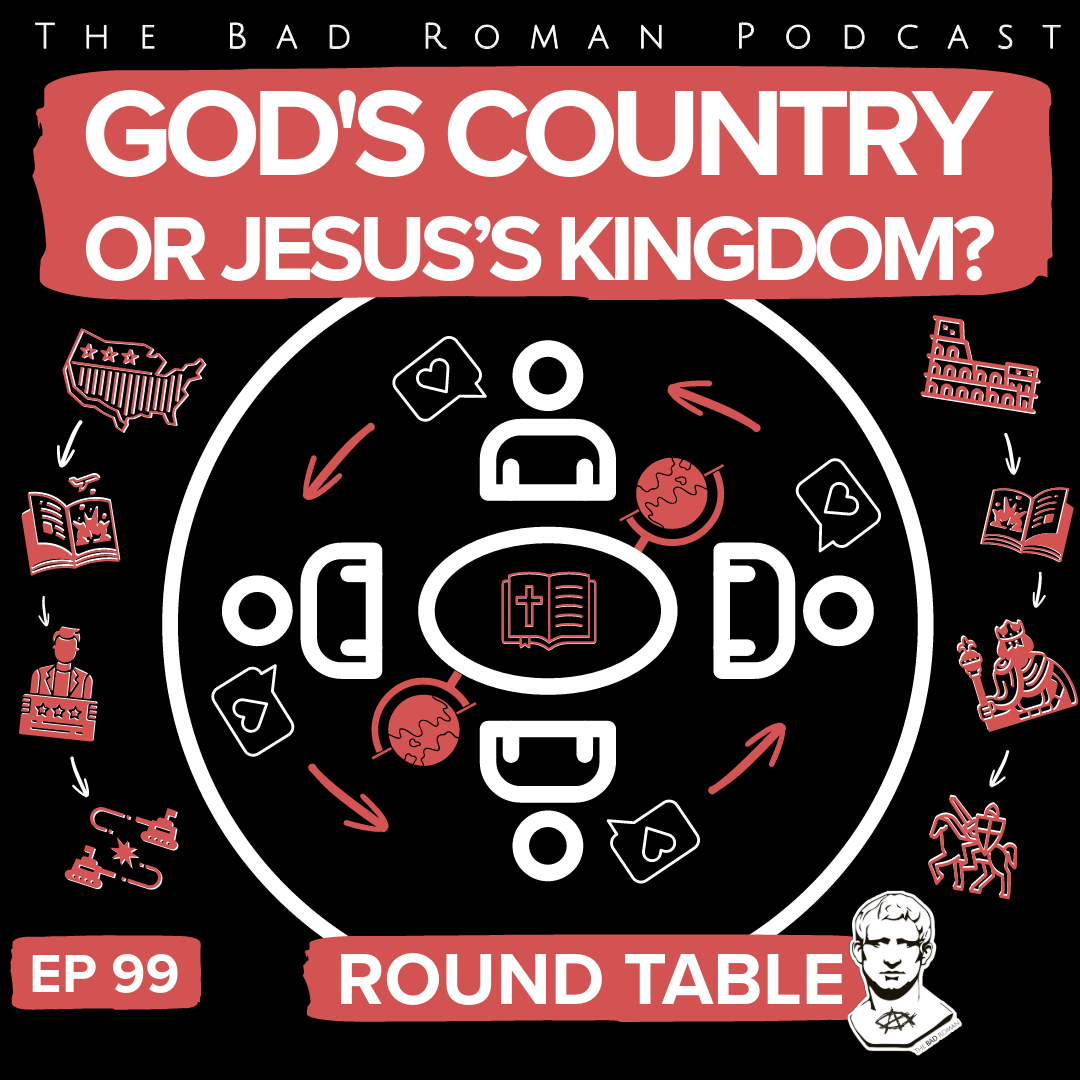About this Episode
In this episode of the Bad Roman Podcast, host Craig Harguess welcomes Anthony, Nathan, and Wyatt from the Against All Flags podcast. Together, they navigate the turbulent waters of Christian Anarchy, holding steadfast to the conviction of 'No King but Christ.' The episode reveals the transformative power of a Christcentric anarchist viewpoint, as they share heartfelt stories about moving beyond traditional politics and organized religion, while keeping Jesus's teachings at the forefront.
They address the inner turmoil Christians often experience when their obligations to the state appear to conflict with their spiritual convictions. The discussion delves into the historical stances of the early church on nonviolence and examines how contemporary believers reconcile these seemingly contrary paths.
Personal anecdotes, biblical reflections on flawed earthly rulers, and the unshakable sovereignty of Jesus are woven throughout the narrative, emphasizing the rallying cry 'No king but Christ.' The societal implications of standing against national symbols, such as the choice to stand or sit during the national anthem, are also tackled.
Craig and his guests reflect on the journey of their respective podcasts, from inception to a firm dedication to merging Christian insights with issues of political culture. They celebrate the mission to guide listeners towards a deep, nonviolent faith that rejects the entanglements of statism and violence, acknowledging the global Christian community, the reach of podcasts, and inspirations like Stephen Rose from AnarchoChristian.
Connect with our guests:
Follow their Podcast: Against All Flags
Nathan
Instagram: @against_all_flags_pod
Anthony
Instagrams: @against_all_flags_boomer
Wyatt
Episode Timestamps:
Timestamps:
01:08 Exploring Anarchy Through Fiction
Introduction to Joseph Macolino, inspired by Tolkien and Orwell.
Creation of the fictional universe Evorath, developed from high school to college.
Joseph's trilogy explores themes of questioning government authority and discovering Christian principles.
12:35 Spreading Christian Anarchy Through Fiction
The intersection of fiction and Christian anarchism is highlighted.
Influence of various texts, maintaining a critical perspective.
Story arc in fantasy series depicts the transition from monarchy to an anarchist society, paralleling historical movements.
Aim to challenge preconceptions and promote Christian anarchism through storytelling.
19:59 Discussing Writing, Influence, and Christianity
Focus on Evorath's world-building, where humans are divinely created.
Discussion on media influence and personal experiences of non-conformity.
Importance of writers in highlighting societal propaganda and Christian resistance.
Emphasis on living according to Jesus' teachings despite potential opposition.
28:22 God Is Strategic
A personal anecdote about a significant encounter and the concept of divine timing.
Reflection on the creative process and progress in writing projects.
Introduction of the 'Bad Woman Project' and a call for support.
Teaser for the content of upcoming books without giving away specifics.
31:46 Expanding on Book Two Characters
Insight into Averath's characters, including the villain Yazook Stahl.
Exploration of shapeshifter species and character development.
Themes of power, corruption, and societal improvement are examined through character arcs.
39:46 Fantasy Series and Libertarian Ideology
Introduction of diverse races and characters in the third book.
Characters question tribal loyalties, leading to the formation of a new community.
Discussion on societal ideals, comparing the fictional society to voluntarism.
Upcoming books to delve into the complexities of a society striving for harmony post-trilogy.















